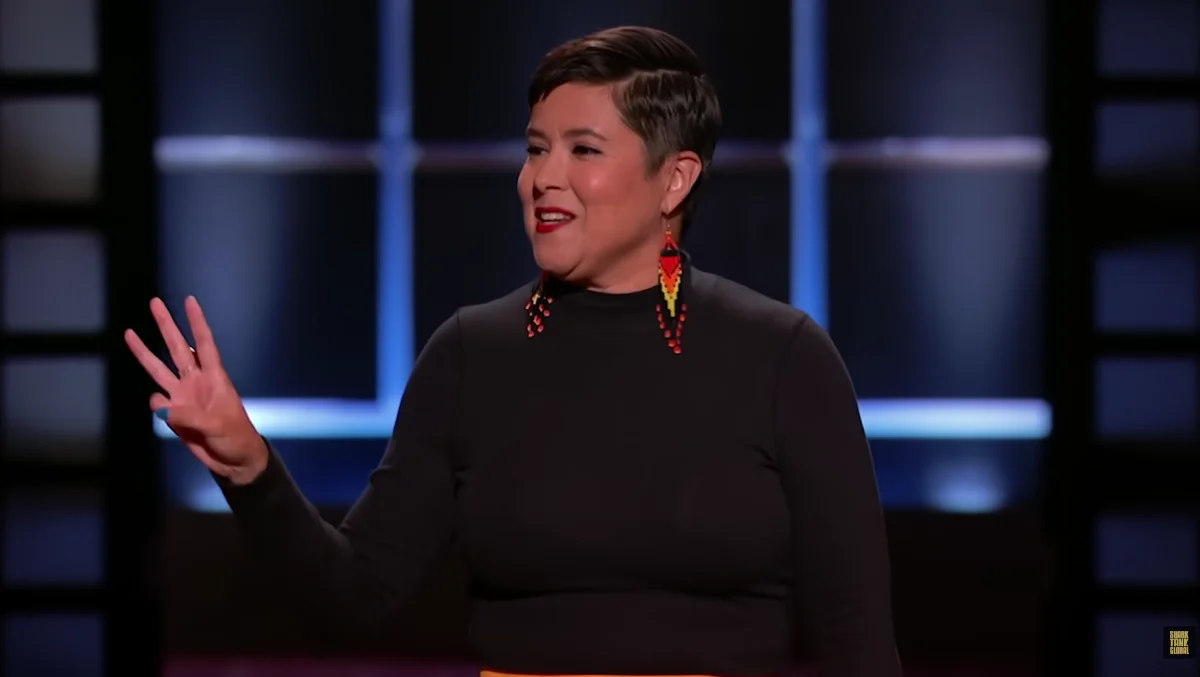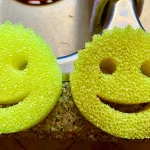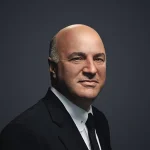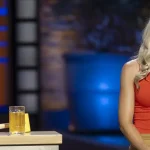
Shark Tank is a launchpad for businesses in various ways. Deal or no deal, an appearance on the show offers you guaranteed marketing among the masses. It also shows how a simple TV appearance can transform unknown startups into household names overnight.
Have you ever found yourself looking up a product you saw in an episode while eating dinner from your couch?
Whether or not entrepreneurs secure a deal with the Sharks, simply being featured in front of millions of viewers often delivers a priceless outcome: exposure, credibility, and sales. This phenomenon is popularly known as “The Shark Tank Effect.”
It refers to the huge surge in traffic, media attention, and customer demand that businesses experience after their episode telecasts.
Many businesses walk in hoping to win over a Shark. But there’s also an unspoken silver lining. A lot of them show up simply for the marketing and publicity that Shark Tank guarantees.
Landing a deal is a win, but so is pitching on prime-time TV and showcasing your product to some of the most successful people in the country.
From rejected pitches that turned into multimillion-dollar brands to small startups that exploded in popularity, Shark Tank has repeatedly proven that a few minutes of primetime TV can change everything.
From potential investors outside the Tank to your next big customer base, many people are watching.
Why Exposure Can Be as Valuable as a Deal
Not every company secures a deal on Shark Tank, but even without a handshake, the national spotlight can deliver:
- Sudden spikes in online traffic and sales
- Investor interest beyond the Tank
- Retail partnerships and media coverage
- Credibility with customers who see validation in just appearing on the show
Mark Cuban once said, “Even if you don’t get a deal, the exposure alone can be worth millions.”
Businesses That Profited From The Shark Tank Effect
A Shark investor is not the only thing you can get from Shark Tank; these examples prove so:
PetPlate
PetPlate’s founder, Renaldo Webb, walked out of Shark Tank without a deal, but that was only the beginning.
Quick Facts
- Founder: Renaldo Webb
- Product: Pet food delivery service
- Investment Asked: $100,000 for 10% equity
- Deal Status: No deal
Renaldo said he was very dejected after his pitch; it was one of the hardest moments of his life. PetPlate worked like a food delivery app for dogs, but the Sharks raised concerns about cost and scalability.
The rejection led him to rethink the business model, and Webb decided to change things up. He turned his business into a subscription model that ships pre-portioned meals straight to customers’ homes.
The new pivot paid off, to say the least. Since appearing on the show in 2016, PetPlate has secured over $30 million in funding and grown into a nationwide brand.
As of August 2025, the company’s total revenue is around $26.2 million. PetPlate’s net worth is estimated to be between $36 million and $54 million.
Sienna Sauce
Sienna Sauce was led by a 16-year-old who proved that age and business are both just numbers.
Quick Facts
- Founders: Tyla-Simone and Monique Crayton
- Product: Chicken wing sauce
- Investment Asked: $100,000 for 10% equity
- Deal Status: Deal secured with Kendra Scott
- Deal Outcome: $100,000 for 20% equity
Sienna Sauce landed a handshake deal with guest Shark Kendra Scott for $100,000 in exchange for 20% equity. This was not even the best thing to happen to Tyla then.
The pitch was followed by an overnight explosion of interest. Orders poured in, and within hours the business pulled in $300,000 in sales.
Crayton was featured in a FedEx commercial, appeared on major outlets like Good Morning America and CNBC, and saw her products roll out to shelves in Wegmans, Target, HEB, and World Market.
As of August 2025, Sienna Sauce has earned upwards of $1 million in lifetime sales. In 2023, the company was at a valuation of $7.5 million, and early predictions pointed towards a valuation in the ambit of $25 million by 2025.
Beddley
Lola Ogden pitched her brand of duvet cover on Shark Tank at a time that was not particularly the best for packaging. Her duvet cover, designed with three open sides to make changing bedding simple, wasn’t explained well on the packaging.
Quick Facts
- Founder: Lola Ogden
- Product: Duvet covers
- Investment Asked: $150,000 for 10% equity
- Deal Status: No deal
The Sharks noticed the problem and chose not to invest. Albeit disappointed, Lola treated the experience as a rare chance to share her idea with millions and took their feedback as a way to improve.
On the bright side of things, the show gave Beddley a huge boost. Sales jumped after the episode aired. This in turn expanded the customer base. To cater to the newfound appeal, the brand started worldwide shipping.
Some of the most meaningful responses that Lola received came from people with disabilities or health challenges. They tell her about how the duvet cover has given them back independence in making their beds.
Recent data is unavailable, but considering the company was doing $28,000 in sales before appearing on Shark Tank, their last estimated net of over $4 million sounds like a sweet Shark Tank effect.
Tenikle
Founder Hans Dose pitched Tenikle in fin-flippers, an octopus inflatable around his waist, $39 in his bank account, a sense of humor, and a dream.
Quick Facts
- Founder: Hans Dose
- Product: Multi-utility phone mount
- Investment Asked: $200,000 for 10% equity
- Deal Status: Deal secured with Daymond John
- Deal Outcome: $200,000 for 30% equity
Hans pitched Tenikle, a flexible mount that sticks to almost any surface. He ended up landing a deal with Daymond John.
The partnership immediately cleared his debt, and his pitch attracted a sales team that wanted to work with him after seeing the episode.
Tenikle sold out on Amazon within minutes of the episode airing. In just six weeks, sales climbed to $375,000. The secret recipe in Hans’ pitch was humor and honesty.
Since then, Tenikle has pulled in $4 million in revenue and crossed seven figures in yearly sales.
Nopalera
What sets this self-care brand apart, and did the Sharks bite on skincare made from prickly pear cactus?
Quick Facts
- Founder: Sandra Velasquez
- Product: Self-care beauty products
- Investment Asked: $300,000 for 5% equity
- Deal Status: No deal
Sandra Velasquez’s company makes bath and body care products inspired by Mexican culture, using the nopal cactus as the main ingredient for its nourishing and sustainable qualities.
She received offers from Kevin O’Leary and guest Shark Daniel Lubetzky, but turned them down. Velasquez had a firm limit on how much equity she was willing to give away, and the Sharks wanted more.
The choice of not taking a deal worked in her favor. In less than two weeks after the episode aired, Nopalera saw 6,000 orders and more than $300,000 in sales. A few months later, the company raised $2.7 million.
Velasquez says she went on the show to grow Nopalera and to set an example for the Latino community.
Recent data is not available, but the last reported valuation of the company was around $10 million.
eCreamery
eCreamery fixed a hole in the ice cream market by packaging their product in a way that is fit for gifting.
- Founders: Abby Jordan and Becky App
- Product: Custom ice cream flavors and gift-giving service
- Investment Asked: $250,000 for 33% equity
- Deal Status: No deal
Abby and Becky came forward to the Tank with custom ice cream that customers could design and have shipped straight to their door.
Kevin O’Leary showed interest, but ultimately, no deal was made. At the time (in the financial year of 2012), they were making $750,000 a year, with $60K in profit.
The duo walked out empty-handed, but they had faith in two things. One was their product, and the second one was the Shark Tank effect.
Before their episode aired, Becky and Abby ensured they were ready for the rush. They rented extra freezer space and boosted production from 800 pints to over 6,000. The preparation paid off.
In the weeks after the show, the business pulled in $250,000 in just two months.
The success even landed eCreamery a follow-up segment, where they shared how their sales skyrocketed despite not landing a deal with the Sharks. For them, the exposure alone turned out to be a game-changer.
Why Shark Tank Effect Matters
Shark Tank has proven that winning a deal is only one path to success. The true magic lies in the exposure, credibility, and customer reach that come with pitching on primetime TV.
For some, like Ring and Kodiak Cakes, the Sharks’ rejection fueled billion-dollar empires. For others, like Tenikle and PetPlate, the effect jump-started a profitable journey they may not have achieved otherwise.
One thing is clear: deal or no deal, the Shark Tank Effect is real and can transform businesses overnight.
How Shark Tank Boosts Brands
Shark Tank has repeatedly shown that success doesn’t always come from shaking hands with a Shark. For many entrepreneurs, the real win is the attention that follows.
A few minutes on prime-time TV can lead to sold-out products, new partnerships, and a flood of customers who may have never found them otherwise.
| Business | Deal Status | Shark Tank Outcome |
|---|---|---|
| Tenikle | Deal with Daymond John | Cleared debt, gained sales team, reached $4M+ in revenue |
| Sienna Sauce | Deal with Kendra Scott | Expanded into major retailers, earned $1M+ lifetime sales, valuation rising |
| PetPlate | No deal | Pivoted to subscription model, raised $30M+, became a nationwide brand |
| Nopalera | Turned down offers | 6,000 orders in 11 days, raised $2.7M, $10M valuation |
| eCreamery | No deal | Sold out online, $250K sales in 2 months, featured in a follow-up segment |
























